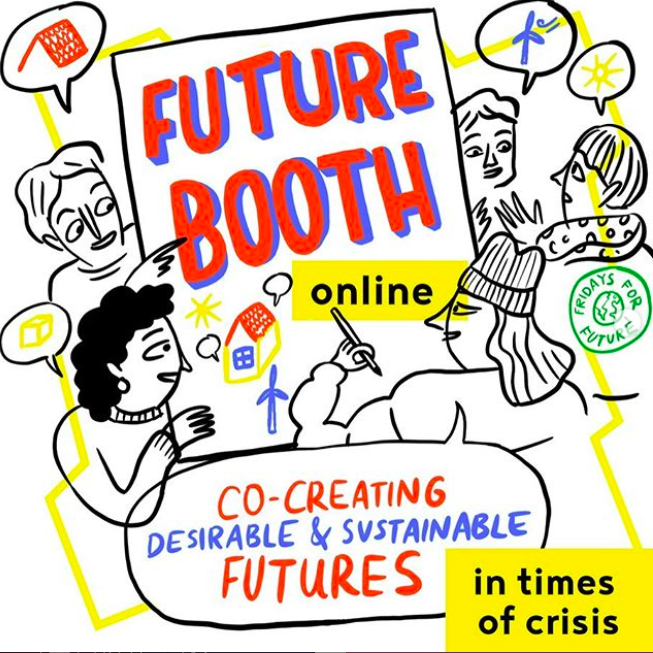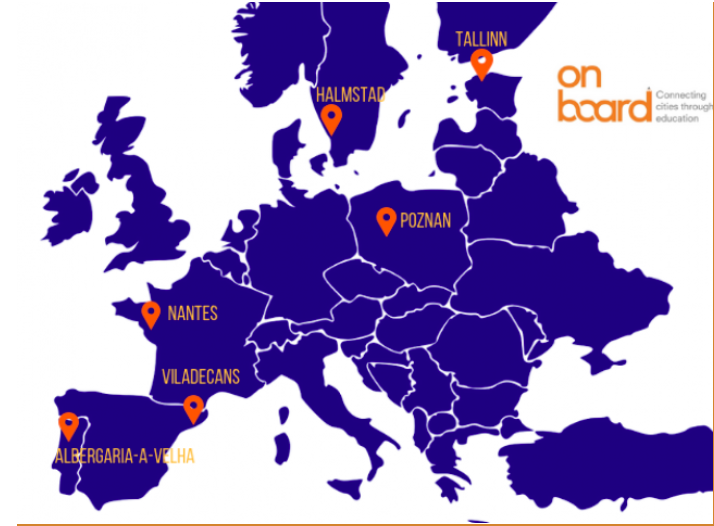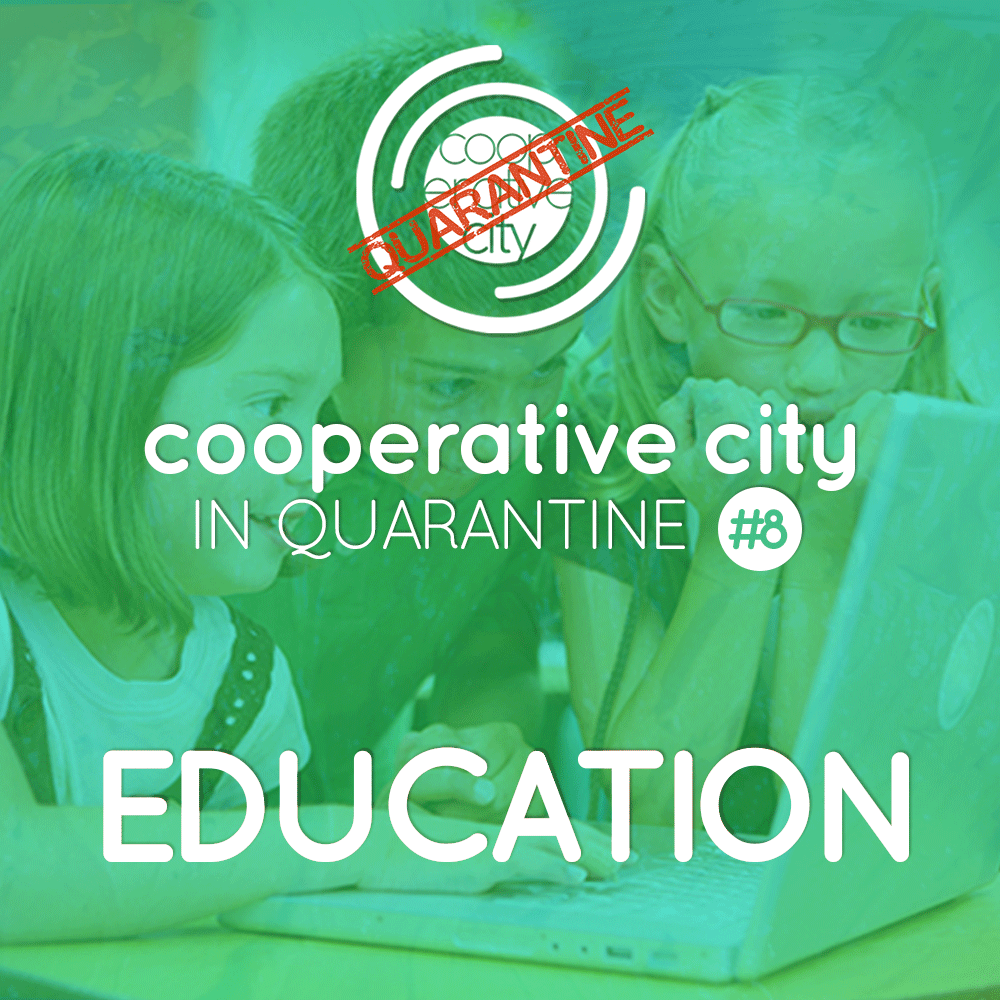What is the role of e-learning in schooling and education, and what are the challenges and opportunities we are seeing by this very swift digital shift we are living through? Digital divide is a major issue in many fields of life, and of course it also affects education. Areas where the internet coverage is poor and where levels of poverty are higher represent a major issue in the personal development of young students. But at the same time, the digital shift isn’t working at its best even when adequate infrastructure is there. Our speakers suggested that more effort should be made to support the teachers during the online classes, in terms of methodology and infrastructure. Despite e-learning being an important surrogate during this quarantine, and many aspects will probably remain on the long run, it cannot replace real life teaching with its social interaction and physical closeness.
This episode is hosted by Daniela Patti (Eutropian). Our guests include:
Francisco Simões – Chair of Cost Action at the Rural NEET Youth Network, Azores Islands, Portugal
Mireia Sanabria – URBACT Expert, On Board City Network, Barcelona, Spain
Sonia Domínguez – European Projects Officer of the On Board City Network, Viladecans, Spain
Domenico Schillaci – Push, Palermo, Italy
Eldon Hilliard – Primary school teacher – Citywest Educate Together National School – Dublin, Ireland
How can you describe the impact of e-learning on education, especially on those communities that have limited access to digital?
Francisco Simões – Virtual tools are making inequality visible. Tremendous impact in terms of access to education. As we all know, inequalities are greater in peripheral and rural areas than urban or suburban areas. The impact is direct because a larger share of the disadvantaged groups doesn’t have direct access to devices and the average level of digital literacy is lower.
Sonia Domínguez – In Viladecans, investment on education has always been a priority in order to promote new technologies, methodologies and collaboration opportunities. In order to help overcome these difficulties, we have collaborated with the regional government on finding ways to provide connection and devices to those who didn’t have access to them, and we are also supporting schools in their shift to digital, while special needs students actually attend real classes in order to receive the support they need. Unfortunately, we expect a lot of new challenges, as there are many new NEETs.

Eldon Hilliard – In Ireland, schools closed in mid-March and now we have been assigning homework on the school website. At the same time, we are upskilling ourselves with newer platforms to provide classes and to get ready for the future. Schools won’t reopen until September, and once we will be “back to normal” things will be different, partly because all schools are coping with the crisis independently, and the digital divide is a real issue for larger families that might not have appropriate devices for all, not to mention those families who cannot afford computers and/or have inadequate internet connection.
Digital divide is more widespread in Southern Europe. How are municipalities reacting to the current crisis?
Mireia Sanabria – The On Board City Network has an agenda that prioritizes education. The Education Innovation Network is basically a community of practices that involves not only the Municipalities, but also schools, families, small businesses and other local entities. Through this community, they propose and implement projects in a collaborative way. This is an advantage because it helps understanding and supporting each other. Therefore, this is not only an educational issue: connectivity and access to devices is of course a basic need, but at the same time municipalities need to coordinate and monitor the action.
How can we help develop services for Municipalities in order to cope with these issues?
Domenico Schillaci – In Italy, Municipalities only manage kindergartens. We started working with the Municipality of Palermo in order to help them redesign their educational approach – from the content to the tone of voice to the variety of topics in order to make the learning experience more interesting and effective. Once the Covid-19 pandemic appeared, we started to work together with the Council for Education for the creation of new content for the kids. We developed activities that could be easily managed by the parents of the pupils (up to 6 years of age), as most children that age are not able to use devices independently. Through a web page, pre-school teachers and educators publish videos to suggest activities that the kids could do during their time at home, including physical activity and tips for easy recipes as well as psychological support for parents who might find themselves unprepared to explain this unprecedented situation to the kids. The digital divide issue is big, yet in Italy the vastest majority of people have smart phones. These devices are enough for watching videos.
What could be the long-term impact of this “new” educational approach?
Francisco Simões – A good side effect of this situation will probably be the higher degree of involvement of teachers in new teaching methodologies. Schools should be seen as a tool for socialization and personal growth rather than just a place where you learn notions according to the academic calendar. Understanding the inequalities caused by the digital divide is a further step towards inclusion, and it will teach both teachers and students how to come back to school and how to rebuild their social interactions, as this pandemic created a psychological burden that must not be ignored.

Mireia Sanabria – The school has a powerful social role that we, in the educational field, already knew. One initiative I can provide the example of Poznań, Poland, one of the On Board cities. Thanks to a partnership between the Municipality and the University, students can volunteer and teach elementary school pupils how to use computers and navigate. We will get used to technology and the digitalisation of education, but we will succeed only if we extend the concept of education beyond the classroom.
What could be the next steps once things get back to normal, and what will stay of the new approach towards digital schooling?
Sonia Domínguez – Our idea of education is an open environment, a learning space where training and studying isn’t only expected from students. We will try to involve as many stakeholders as possible to make sure we can use this experience to evolve – for example, we have already gone “beyond the classroom” and started to work with the Municipal Library in order to provide web-based access to many of their books. Last but not least, we will also focus on programs aimed at healing chronic stress and anxiety, conditions that have always been present in our society and that are evermore becoming a threat to stability and efficiency.
Domenico Schillaci – This is an opportunity for improvement, but we cannot ignore the fact that it will be a very hard challenge. Once schools will physically reopen, we will most probably see that students will alternate virtual and physical classes, as there won’t be enough space for all pupils to stay in the classroom due to safe distance regulations. Of course, this needs an educational and infrastructural strategy that must be implemented at national level, otherwise we will not solve the digital divide issue, we will miss out on technological advancement and the educational system won’t be effective.

Eldon Hilliard – We could finally reimagine education and shift towards a more holistic approach to schooling. However, this requires constant and diffused training for both students and staff, with a constant focus on the fact that elementary school pupils need the physical classroom more than older students, as they need to learn social interactions. I doubt things will work immediately, which is why I think that it takes some degree of pioneering by certain groups to showcase how things can be done, looking at different models and implementing the most effective ones. Collaboration is also crucial: more often than not, younger generations are more tech-savvy than older ones, and that includes teachers. Allowing the direct participation of students in the making of the yearly programme could have very positive effects on their learning process, while increasing their sense of agency.
Francisco Simões – Many governments and education departments don’t have a precise plan. There are huge differences even between students of the same grade in the same school, and it all depends on how their teachers view and implement e-learning. Of course, the Covid-19 outbreak caught us all by surprise, and changes were sudden. Nevertheless, education departments must understand that the school system should evolve hand in hand with technological advancement, providing teachers with better training and working conditions so that they can have a positive impact on their students. I personally think that the quality of teaching comes before infrastructural issues. High-quality teachers apply cooperative strategies, they also encourage self-directed learning and provide informative feedback. That being said, the way people perceive learning and teaching affects their learning and teaching process.
What are you final thoughts?
Eldon Hilliard – From our perspective, the emphasis has always been on how the children are coping with the emergency and with the impossibility to go to school. We try to give them some sort of sense of security, prioritising their mental well-being. We don’t hide the seriousness of the situation, but we try our best to make them feel part of a community of people who care about them.
Domenico Schillaci – I usually say: “innovate responsibly”. It is easy to lose touch with the targets of innovation. Many tools are helping us in this moment of crisis, and they will be useful in the future for building a new idea of school, not just in quarantine but also long term.
Sonia Domínguez – This crisis has given us the opportunity to reflect on the many different aspects of education. We don’t actually know what will happen next – it will allow us to reflect on new methodologies on collaborating and the role of schools, local community and how local agents can provide education.
Watch the full video


